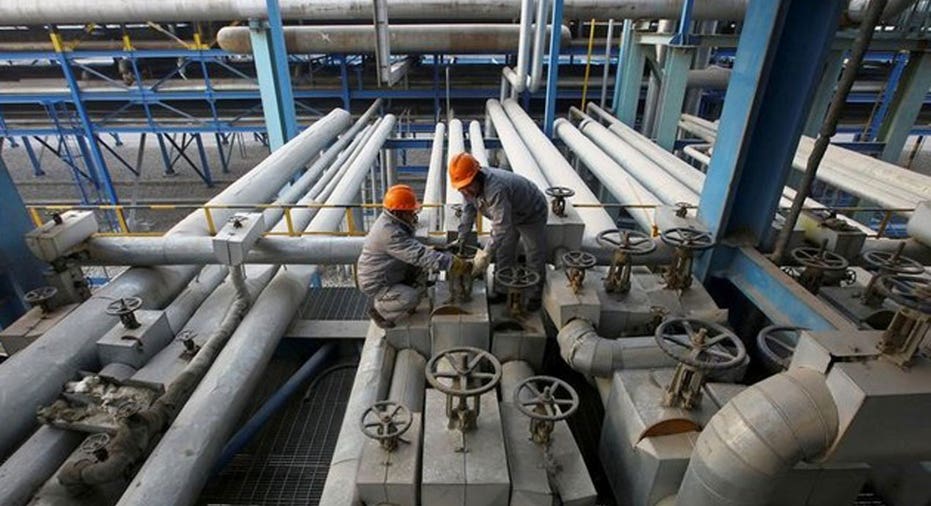Oil gains 2 pct as global markets stabilize, dollar dips

Oil rose 2 percent on Monday, recovering some of last week's steep losses as global equities steadied after their largest one-week slide in two years.
Brent crude futures rose 95 cents to $63.74 a barrel by 1012 GMT, up nearly 2 percent, while U.S. West Texas Intermediate futures gained $1.03 to $60.23, up 1.8 percent.
A weaker dollar helped to boost oil by making dollar-priced crude cheaper for holders of other currencies.
European shares took their lead from Friday's rise on Wall Street, while other commodities including copper and gold also strengthened.
Consumption remains robust, even though rising U.S. crude production has knocked oil off its 2018 highs above $70 and threatened the efforts of the Organization of the Petroleum Exporting Countries to prop up prices by reining in supply.
"Demand growth is very strong and with declines in places like Venezuela, is helping the situation. If demand stays strong, it still looks like OPEC will be in control in 2019," SEB chief commodities strategist Bjarne Schieldrop said.
"If global growth does slow down and oil demand starts to slow, then production growth in the U.S. becomes a problem, because OPEC's cake starts to shrink and that will be the line in the sand," he said.
U.S. oil production has risen above 10 million barrels per day (bpd), overtaking top exporter Saudi Arabia and coming within reach of top producer Russia.
OPEC and partners including Russia have agreed to cut their crude output by 1.8 million bpd for a second year, but U.S. production looks set to continue to grow.
U.S. energy companies added 26 oil rigs looking for new production last week, boosting the count to 791, the highest since April 2015, energy services firm Baker Hughes said on Friday.
"The increase over the last month has been driven primarily from private producers," U.S. bank Goldman Sachs said in a note. "Investor fear around greater U.S. oil production/lack of producer discipline has risen."
PVM Oil Associates strategist Stephen Brennock said these are tough times for oil bulls.
"Positives may appear in short supply but, along with OPEC-led production curbs, buyers can take solace from a healthy global oil demand backdrop. Much of this is owing to China’s ravenous thirst for oil, which saw it surpass the U.S. to become the world’s largest crude importer in 2017," he said.
(Additional reporting by Henning Gloystein in SINGAPORE; Editing by Dale Hudson)



















